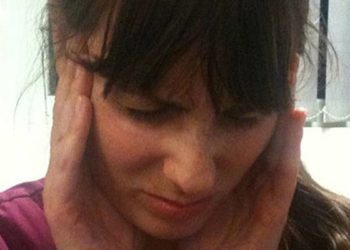Wellness Check: Mental Health
2 Minute Medicine is pleased to announce that we are launching Wellness Check, a new series dedicated to exploring new research evidence focused on wellness. Each week, we will report on articles examining different aspects of wellness, including (but not limited to) nutrition, sleep, reproductive health, substance use and mental health. This week, we explore the latest evidence-based updates in mental health.
Resource Groups may improve empowerment in those with severe mental illness
1. In this randomized control trial, resource groups (RGs) improved empowerment in individuals with severe mental illness (SMI).
2. Those in the RG route also showed improvements in personal recovery, social contact, disability, general functioning, and social functioning.
Evidence Rating Level: 2 (Good)
Individuals who experience severe mental illness (SMI) are at increased risk of treatment-resistant symptoms. Social support represents an important aspect of mental health intervention. Resource groups (RGs) provide structured integration of social network support into the treatment plan of patients. These groups have both formal components and informal components, consisting of healthcare practitioners and peers, respectively.
This randomized control trial compared flexible assertive community treatment (FACT) to FACT combined with RGs. Individuals who were adults, diagnosed with an SMI, and scheduled for FACT for at least 12 months were included. Exclusion criteria included previous FACT over two years in duration. The primary outcome assessed was self-reported empowerment which was measured with the Netherlands Empowerment List. Additionally, quality of life, treatment satisfaction, psychopathological symptoms, adult attachment, social contact, employment, and family involvement were measured.
A total of 158 individuals were randomly allocated to either the FACT with RG (n=89) or FACT (n=78) group. Those in the FACT with RG treatment demonstrated clinically significant improvements in empowerment levels. Additionally, those in FACT with RG showed enhanced quality of life, personal recovery, as well as social and general functioning. Psychopathological symptoms, employment, attachment, and amount of social contact did not differ between groups. This study was limited in that there was a lack of non-SMI control group or blinding to treatment group. Nonetheless, the outcomes of this study suggest that RGs may help improve quality of life in those suffering from SMIs.
1. In this clinical trial, deep brain stimulation (DBS) showed clinical benefit in patients with treatment resistant depression (TRD).
2. Improvement was sustained for over 10 years in half of patients who completed follow-up.
Evidence Rating Level: 3 (Average)
Major depressive disorder is refractory to treatment impacts in over a third of patients. Deep brain stimulation (DBS) has been used to improve symptoms in those with tremors but shows potential benefit for those with treatment resistant depression (TRD). It is not known whether improvement in these patients is sustained over an extended follow-up period.
The present clinical trial measured psychiatric function in a group of patients who received TRD. Patients were included who were diagnosed with severe TRD and had previously failed at least 4 trials of therapeutics. Outcomes were measured with the Montgomery-Šsberg Depression Rating Scale (MADRS) and adverse events were recorded using retrospective chart review. Follow-up occurred annually up to 10 years after baseline assessment.
In total, 8 patients were included and 6 completed the entirety of follow-up. At 10 years, 50% of participants had sustained clinically significant improvement of symptoms whereas 25% of participants were in full remission from TRD. One patient discontinued DBS due to perceived lack of improvement, and another committed suicide after DBS was stopped due to recurrent mania. This study was limited in that it included a small sample size and lack of control group. Therefore, these results cannot be reliably applied to the general population. Nonetheless, this study suggests that DBS may reduce symptoms in patients with TRD, and sustain improvement for up to 10 years. Future studies would be necessary to include a larger sample size and determine optimal stimulation requirements for patients with TRD.
Physical activity interventions may improve symptoms of attention-deficit/hyperactivity disorder
1. This systematic review and meta-analysis was performed to assess the impact of physical activity (PA) interventions on attention-deficit/hyperactivity disorder (ADHD).
2. PA may improve ADHD symptoms, particularly those related to inattention.
Evidence Rating Level: 1 (Excellent)
Symptoms of attention-deficit/hyperactivity disorder (ADHD) may impact cognitive and behavioral function in those affected. The most common treatments used are therapeutics and therapy. Emerging literature supports a link between physical activity (PA) and reduction of ADHD symptoms as well as associated functional limitations. However, the degree of symptom improvement associated with PA interventions has not been fully elucidated.
In the present systematic review and meta-analysis, studies were included which evaluated the efficacy of PA interventions on improving ADHD symptom scores. Studies were excluded which did not report ADHD using scale symptom scores. Outcomes included improvements in all ADHD symptoms as well as specific symptoms including hyperactivity, impulsivity, emotional problems, inattention, and behavioral problems.
A total of 23 studies (9 before-after studies and 14 two-group control studies) were included in the meta-analysis with a pooled 535 participants. In studies comparing PA to a control group, significant improvement was only seen in inattention-related symptoms. Conversely, in studies which looked at changes in symptoms in one group before and after PA, significant decreases in all ADHD-related symptoms were detected. This study was limited as a result of the heterogeneity in symptom scales used, inclusion of studies with both child and adult participants, and large effect size in a few studies used in the pooled analysis. Nonetheless, this study suggests that PA may reduce symptom burden in individuals with ADHD.
Image: PD
©2021 2 Minute Medicine, Inc. All rights reserved. No works may be reproduced without expressed written consent from 2 Minute Medicine, Inc. Inquire about licensing here. No article should be construed as medical advice and is not intended as such by the authors or by 2 Minute Medicine, Inc.









